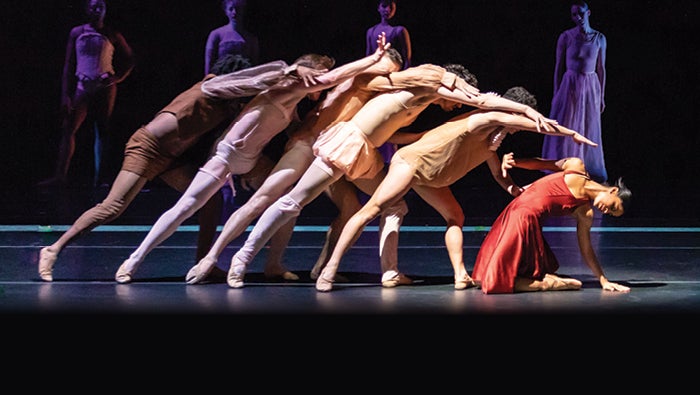This show sounds like an implosion of borders and genres.
Here is Will Shakespeare in Olde England and a lover (maybe) with African roots. The show links ballet, poetry and two musicians, one Italian, the other African-American; it was created in Nashville.
That’s “Black Lucy and the Bard” (shown here), at 9 p.m. Friday (Sept. 16)on PBS, under the “Great Performances” banner. It makes sense when you meet Caroline Randall Williams, a true genre-buster.
“I really get to merge these things fully and try to tell the story of my Black American body, but also engage with the Anglophilic part of my brain,” she told the Television Critics Association.
Black history ripples through her roots. A grandfather was a prominent Nashville lawyer and civil rights leader, a great-grandmother was in the Harlem Renaissance. But a generation before that, she said, “seven of my eight great, great-grandfathers were white men who raped their help.”
Her mother, Alice Randall, is both an author and a songwriter – the first woman to write a song (Trisha Yearwood’s “XXX’s and OOO’s”) that was No. 1 on the country chart. Williams went to prep school and to Harvard, spending time – as an undergrad and as a grad student — at Oxford.
That’s where she heard of a professor who feels Shakespeare’s “dark lady” sonnets may have been written about Black Luce, a brothel owner.
A set of sonnets in 1609 included 26 devoted to the “dark lady.” Most scholars feel the reference is abstract, but Williams – “obsessed with Shakespeare for a long time” — loves the alternate version.
She points to lines like “beauty herself is black” and references to hair like black wires. She also talks of records that show Black Luce and Shakespeare in the same places at the same time. “I’m very excited about the legitimacy of her candidacy as the Dark Lady.”
So she wrote a book of poems, which a dance patron gave to Paul Vasterling,artisti director of the Nashville Ballet.
“I originally thought this was just going to be a dance,” Vasterling said. “But then I met Caroline and I thought, ‘She really should just be in it.’”
Williams, a former acting student, became the show’s narrator and poet. Kyla Rowser, who “had a big part in the creation of the choreography” danced the title role.
For the music, he asked Rhiannon Giddens, an Americana-music leader since her Carolina Chocolate Drops days. “I’m one of those people who say yes and then I figure out how to do it later,” she said.
Soon, Giddens was adding Francesco Turrisi, an Italian musician “who ended up composing the score with me. It’s a unique pairing.”
Then again, everything about this is unique. In the heart of country music, you don’t expect a merger of ballet, poetry and Italian and African-American songwriters, re-examining the passion William Shakespeare described in England, 413 years ago.
